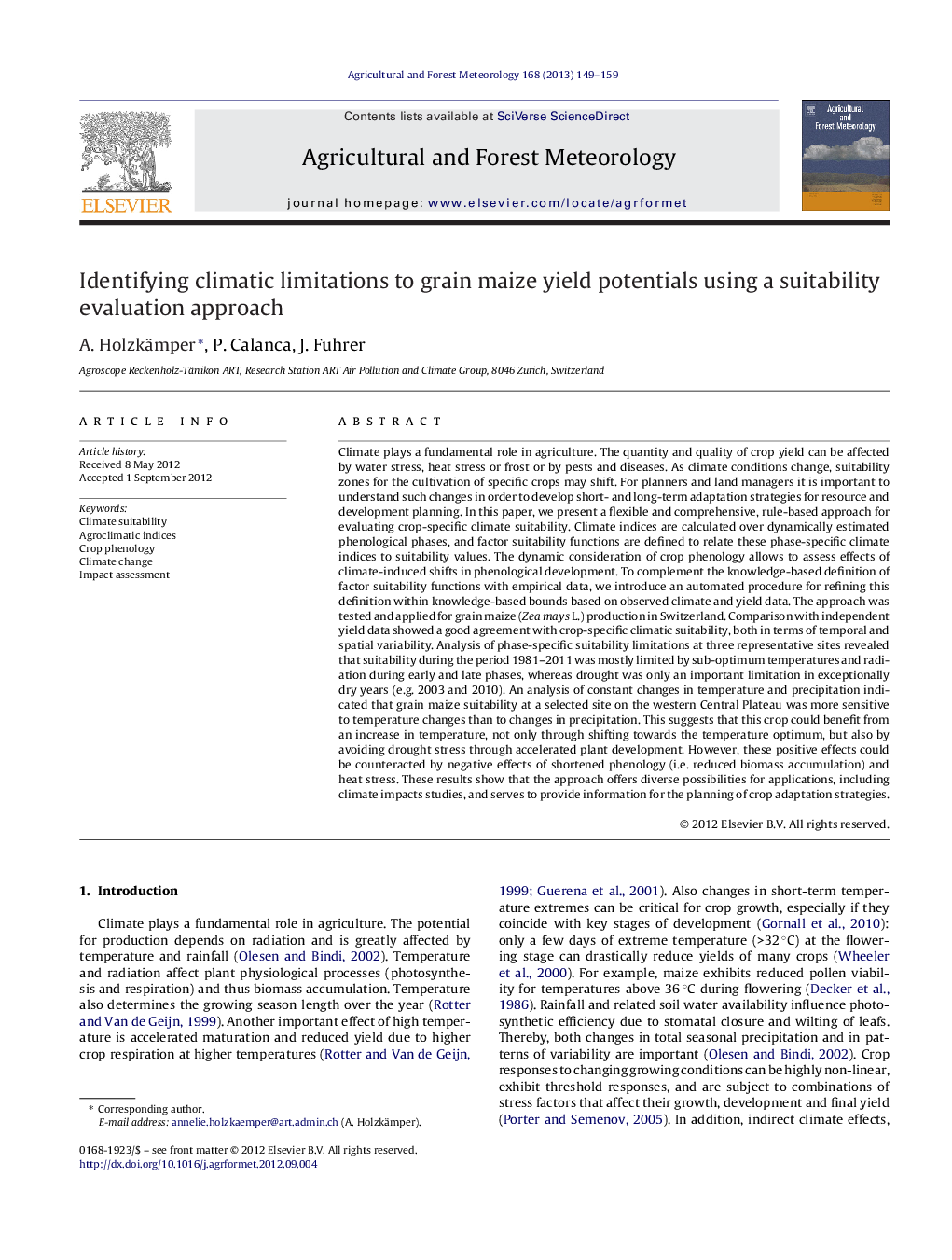| کد مقاله | کد نشریه | سال انتشار | مقاله انگلیسی | نسخه تمام متن |
|---|---|---|---|---|
| 81937 | 158362 | 2013 | 11 صفحه PDF | دانلود رایگان |

Climate plays a fundamental role in agriculture. The quantity and quality of crop yield can be affected by water stress, heat stress or frost or by pests and diseases. As climate conditions change, suitability zones for the cultivation of specific crops may shift. For planners and land managers it is important to understand such changes in order to develop short- and long-term adaptation strategies for resource and development planning. In this paper, we present a flexible and comprehensive, rule-based approach for evaluating crop-specific climate suitability. Climate indices are calculated over dynamically estimated phenological phases, and factor suitability functions are defined to relate these phase-specific climate indices to suitability values. The dynamic consideration of crop phenology allows to assess effects of climate-induced shifts in phenological development. To complement the knowledge-based definition of factor suitability functions with empirical data, we introduce an automated procedure for refining this definition within knowledge-based bounds based on observed climate and yield data. The approach was tested and applied for grain maize (Zea mays L.) production in Switzerland. Comparison with independent yield data showed a good agreement with crop-specific climatic suitability, both in terms of temporal and spatial variability. Analysis of phase-specific suitability limitations at three representative sites revealed that suitability during the period 1981–2011 was mostly limited by sub-optimum temperatures and radiation during early and late phases, whereas drought was only an important limitation in exceptionally dry years (e.g. 2003 and 2010). An analysis of constant changes in temperature and precipitation indicated that grain maize suitability at a selected site on the western Central Plateau was more sensitive to temperature changes than to changes in precipitation. This suggests that this crop could benefit from an increase in temperature, not only through shifting towards the temperature optimum, but also by avoiding drought stress through accelerated plant development. However, these positive effects could be counteracted by negative effects of shortened phenology (i.e. reduced biomass accumulation) and heat stress. These results show that the approach offers diverse possibilities for applications, including climate impacts studies, and serves to provide information for the planning of crop adaptation strategies.
► We present an approach for evaluating yearly crop-specific climate suitability.
► An initial knowledge-based evaluation is refined based on observed yield data.
► Climate potentials and limitations can be identified, providing a basis for adaptation strategies.
Journal: Agricultural and Forest Meteorology - Volume 168, 15 January 2013, Pages 149–159